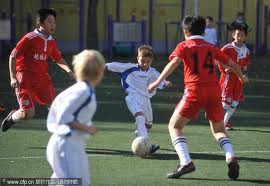
As I drove with my three youngest children in the back seat, I put them through their Spanish vocabulary words. When they didn’t get the right answers, my arm flew back involuntarily as if to wop one of them in the back seat, but of course I hit the bucket seat next to me. “What just happened?” I said to myself, stunned by what I had just done. “Was I going to hit one of my kids because they didn’t know a vocabulary word? Was that me?”
I’m not a yeller, not a hitter, not an angry person. So what triggered that crazy action? It never happened again, but I began wondering about my bottom line. Was I a needy Mom? Was my kid’s job to make me look good? I slowly began to realize that my significance was enmeshed in: 1. How well they did and 2. How good they looked. When my youngest moved out, I shifted to finding my self worth in my business.

In the movie Chariots of Fire, an athlete was going for gold in the 100 yard dash. “Why are you working so hard?“, he was asked. “When that gun goes off, I have 10 seconds to justify my existence,“ was his reply. “I want to know that I’m justified being here. I want to know that my life counts, is worth something, that my existence is justified. The gold medal he wins is his justification. It makes him feel validated, worthy, accepted.
A newspaper reporter interviewed movie producer Sydney Pollock just before he died in 2007, and although the grueling movie making process was wearing him down, he couldn’t stop working. “Every time I make anoher picture, I earn my stay for another year or so”, was his explanation. What’s he saying? The same thing as the runner. ‘I feel I need to earn my stay. Here’s why my life is worthwhile, acceptable, valid.’

A writer, feeling his career wasn’t progressing, and wondering what value his life had, shared in a newspaper article, “When I look at my two little daughters, then I know that my existence is justified.”
There are parents, a lot of parents, who look at their children and think, “There really isn’t anything I do that makes me feel valuable, that justifies my existence. My life is worthwhile because of them. I’ve always said: “I’m writing five books.” Meaning, my life is all about the five kids I’ve raised.
Parents who make their children the focus of their lives will be disappointed. Their passion for their children’s success is basically selfish. Children will disappoint us. This misguided focus is actually one of the causes of child abuse. We need something bigger, higher to give us significance.

But this is the “default mode” of the human heart. Our computers run in default mode automatically unless we deliberately program them to do something different.
We habitually and naturally look to outside things to justify our significance and give us security: work, approval from others, power, influence, possessions, children, marriage. We may think we don’t, but on a deeper level these things are the foundation of security and significance. Therefore, we’re driven by fear, a lack of self-control and anger.
The truth is that we’re valuable just because we are.
Change comes as people realize their own value and worth. Knowing their inestimable value gives remarkable status–one that power and money and even family cannot give. One thing that makes an object valuable is being one of a kind. Each person is unique. There’s no one on the planet like me, even if I’m an identical twin.

Consider the love we have for a newborn–an infant who brings us endless work, sleepless nights and the loss of thousands of dollars. They poop, pee, eat, cry, keep us up all night and don’t contribute in any way to the household. They haven’t performed a sonata or won a scholarship to Harvard, yet our hearts are amazed by the torrent of joy and love we feel.
You are that beloved infant.
We don’t need work, children, or marriage to give worth. Knowing our own intrinsic value will restructure our motivations and identity. A child-centered world view puts unhealthy pressure on children to play the role of being the perfect child and it destroys them. Children aren’t going to always make wise decisions and will inevitably disappoint us. Our unspoken expectations push them away.

With the truth of his own value centering him, a parent has a winsome, peaceful attitude, because he no longer needs the child to give him meaning and worth.
A single, pregnant Jewish Mom in New York was about to put her signature on a rental application, when the landlord mentioned, “By the way, you’ll be glad to know we don’t accept Jews here.” She quietly put down her pen and said, “Actually I’ll take my business elsewhere.” She resolved then that if she had a boy she would name him Yehudi, which means “The Jew” because she wanted him to be proud of his heritage. Yehudi became one of the greatest violinists of the 20th Century. When asked how he played such beautiful music, he answered, “To play great music you have to keep your eye on a distant star, something beyond yourself, something transcendent.”

Reach for the heavens, as it were, keep your eyes on something bigger than yourself, something bigger than a star, than a child. You’ll make beautiful music in your home.
It’s all right if your child is the center of your universe. All children are the apple of their parent’s eye. But while you’re responsible for your child’s happiness, your children are not responsible for yours. You need to love them for who they are, not because they complete you.
Are You a Needy Parent? Take this Free Test and see how you rate!
http://www.parenting-advice.



















